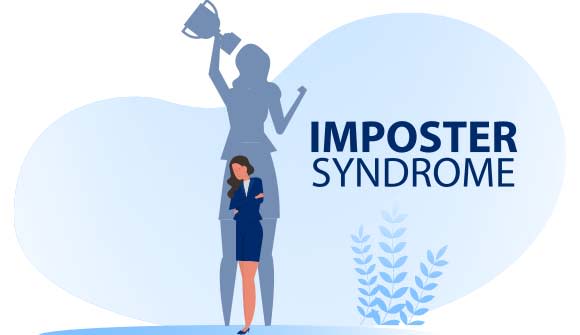Feeling false
How imposter syndrome can make you feel like a phony.
Article Author: Johnny Woodhouse
Article Date:

What do Oscar-winning actor Tom Hanks and Supreme Court Justice Sonya Sotomayor have in common?
Besides rising to the top of their respective professions, they have both reportedly experienced a phenomenon known as imposter syndrome, which impacts people of all ages.
Hanks said in 2016, “No matter what we’ve done, there comes a point where you think, ‘How did I get here? When are they going to discover that I am, in fact, a fraud, and take everything away from me?’”
Justice Sotomayor, the third woman ever appointed to the high court, said in 2019 that she is always “looking over her shoulder, wondering if she measures up.”
Valid feelings, but not mental illness
First described in the late 1970s by a pair of clinical psychologists at Georgia State University, imposter syndrome is a distorted belief that your success is the product of luck or good timing rather than your own merits. It’s estimated that 70% of people will experience at least one episode of it during their lifetime.
While not recognized as an official mental disorder, this perceived fraudulence can cause feelings of generalized anxiety, depression and low self-esteem.
“It’s not a mental illness, but it does stir up intense feelings that can prevent a person from realizing his or her true potential,” said Savitha Puttaiah, MD, psychiatrist and medical director of Baptist Behavioral Health. “So, it’s important to pay attention to your inner voice and acknowledge its presence.”
What triggers imposter syndrome feelings?
Imposter syndrome can develop in response to a number of internal and external factors.
- Family expectations: Some parents create impossible standards for their children. This can lead to feelings of shame and the desire to hide failures.
- Transitions: Starting a new job or role can trigger feelings of inadequacy.
- Personality traits: Perfectionism plays a significant role in imposter syndrome.
- Social anxiety: Lack of confidence in social or performance situations can fuel feelings of self-doubt.
How to manage your imposter syndrome
Dr. Puttaiah recommended trying these five helpful tips when finding yourself in a situation that may trigger imposter feelings:
- Don’t shrug it off. Admit to having doubts about your qualifications and realize there’s always room for improvement.
- Expect failure. Give yourself room to make mistakes at any new beginning.
- Open up to colleagues. Enlist feedback and encouragement from trusted friends, co-workers or a mentor.
- Give yourself more credit. Appreciate your strengths and all the successes you've accomplished in life.
- Visualize success. Imagine nailing an important presentation or job interview with positive self-talk strategies.
One of Dr. Puttaiah’s favorite quotes is about letting go of those persistent feelings of self-doubt and inadequacy that are at the root of imposter syndrome.
“The privilege of a lifetime is to become who you truly are,” she shared, which is by Carl Jung, a Swiss psychiatrist and author known for founding the idea of analytical psychology.
Don't let negative thoughts impact your life
If you're struggling with fears of being unsuccessful or not good enough, the mental health professionals at Baptist Behavioral Health are ready to help. Call 904.376.3800 for more information or to schedule an appointment.



